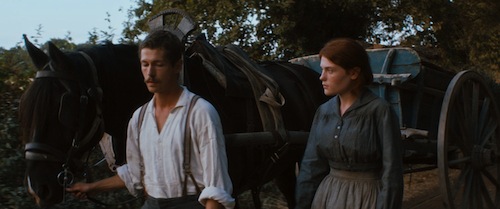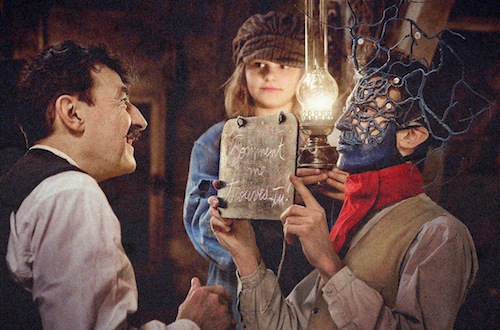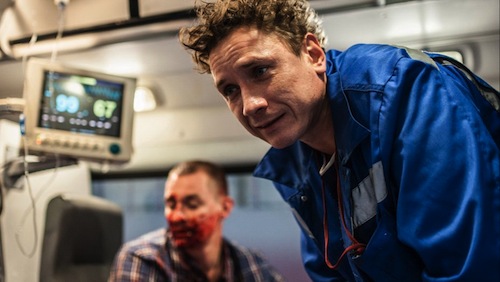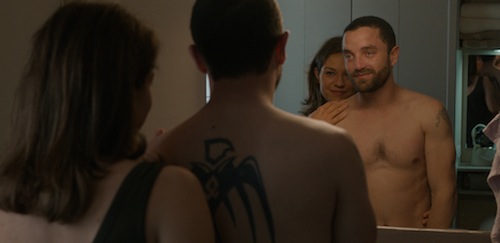Directed by Eliran Elya
Country: Israel
The story depicted in “Doubtful”, an Israeli social drama written and directed by debutant Eliran Elya, was inspired by real events, which is not a relevant factor for us to overlook its seemingly familiar tones and inevitable conclusions.
Tel-Aviv native Assi (Ran Danker - “Eyes Wide Open”), a director and screenwriter, ‘volunteers’ as a film teacher at a Southern Israeli school for juvenile delinquents after a motorcycle accident. The unruly young misfits often turn the classroom into battle rings, and police interventions are not uncommon. Because they are minors, house arrest is the usual punishment for those who don’t follow the rules. This is what was prescribed to the wild, provocative Eden (Adar Hazazi Gersch), after an ugly fight with a colleague.
At first, Assi seems not to bother with the confrontational and often aggressive behavior of his students, but then he starts to care, especially about Eden, whom he suspects to have stolen his wallet and cellphone. Without money to return to Tel Aviv, Assi finds where the student in question lives, leaving his camera in exchange for some money and earning the sympathy of his emotionally unstable single mother, Alma (Hilla Sarjon). Even if the film suggests something more, don’t expect a love story involving the latter because Assi is obsessed with Liraz (Liron Ben-Shlush), a local grocery store clerk who doesn’t seem very pleased with his detachment and uncharming posture. This is a frustratingly underdeveloped segment of the drama.
Oftentimes, Assi seems as much aimless and helpless as his young students and maybe that’s why he becomes so attached to Eden, a misfit who collects and sells plastic bottles with the intention of buying a restaurant for his mother.
The narrative is interspersed with brief headshots of the students telling us something personal about themselves. The stories reflect problematic backgrounds, traumatic experiences, and tense family atmospheres, most of the times described emotionlessly.
Regardless of the respectable intentions, Elya missed the opportunity to do something bolder with a recurrent topic, treading the same paths that many other films did successfully. The choppily edited sequences and the inept score didn’t help the down-to-earth scenes to reach the desired emotional states, while on the contrary, the cast, featuring a considerable number of non-professional actors, provided the restless undertones to keep the film minimally interesting.




























































